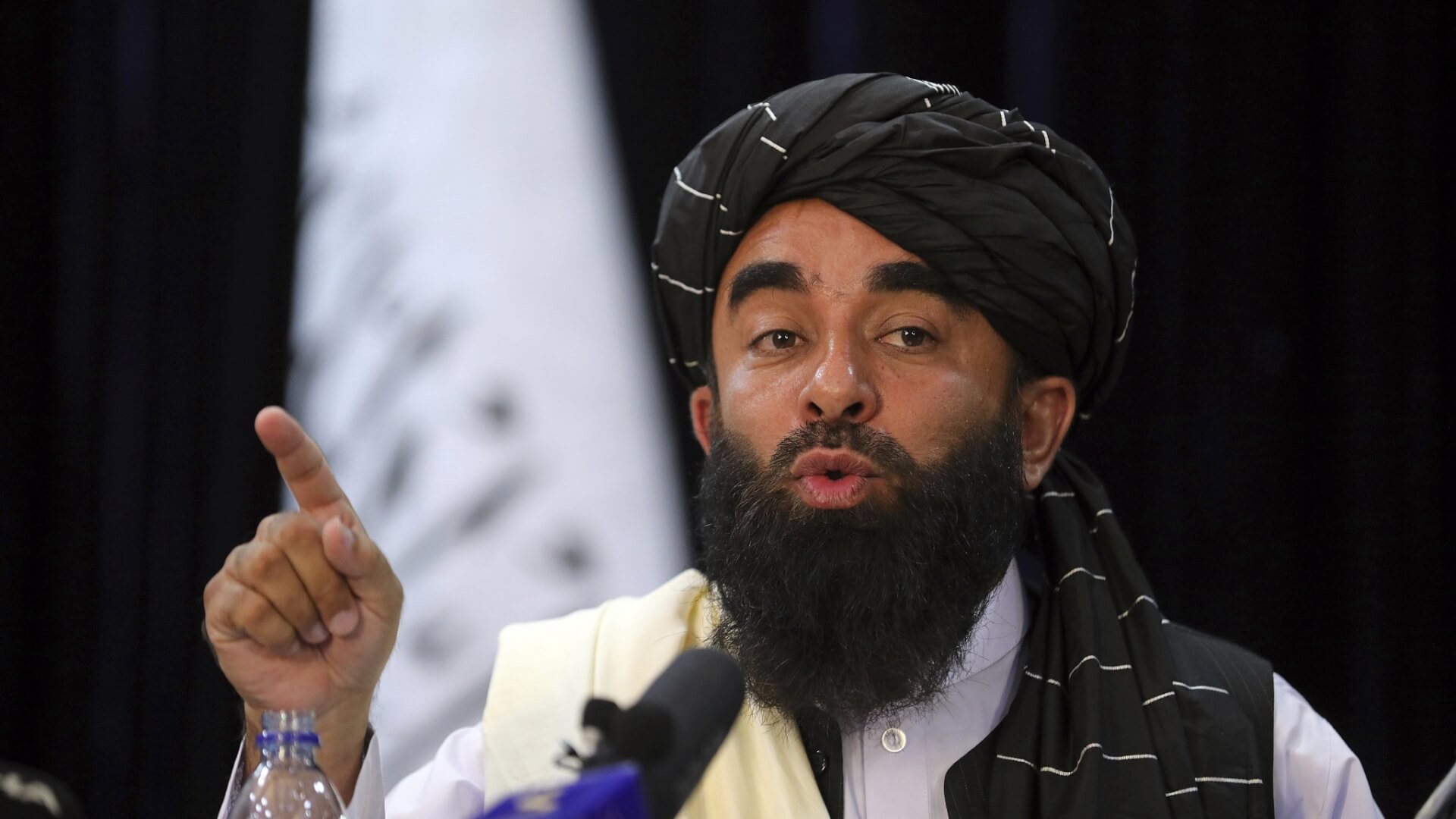Taliban spokesperson Zabiullah Mujahid said on Thursday that “anti-Sharia and Islamic rhetoric” and “laws made by the people “are “not implementable,” affirming that all issues, including minority and women’s rights, should be resolved as per Sharia law. He said that citizens and the media are jointly ‘responsible’ for implementing this decree.
Mujahid made the statement after Supreme Leader Mawlawi Hibatullah Akhundzada convened a meeting with provincial governors in which he pushed for the preservation of Islamic values.
In response to the development, TOLO News quoted a women’s rights activist as saying, “How is Sharia law implemented while the schools for girls’ students above grade six have remained closed for more than 313 days and women are deprived of their basic rights which is the right to education?”
On sidelines of SCO FMs meet, Chinese FM Wang Yi & Taliban
— Sidhant Sibal (@sidhant) July 29, 2022
's Muttaqi hold meeting pic.twitter.com/yGfS9ZRqQZ
Just last week, Mujahid also announced that the Taliban would punish all who criticised Islamic Emirate Of Afghanistan (IEA) scholars and clerics by any gesture, word, or other communication. Afghans have thus been urged to refrain from criticising government officials or Taliban soldiers. This would also bar Afghans from highlighting human rights abuses and violations by the Taliban, which has been criticised for torturing, detaining, and even killing dissidents.
Under the new law, all such acts have been deemed “negative propaganda” that “unconsciously helps the enemies.”
Although Mujahid did not elaborate on what the punishment would be, at the “Great Meeting of Scholars” in Kabul earlier this month, which saw the participation of religious heads and clerics, there was a call for all opponents of the Taliban government to be beheaded.
In spite of these moves, the Taliban has demanded the removal of sanctions and the unblocking of frozen foreign reserves, claiming that it has made significant progress in ensuring women’s rights and national security.
Women and girls arrested for ‘moral corruption’. Peaceful protesters harassed, detained, and tortured. A huge increase in child, early and forced marriages. This is what’s happening in Afghanistan less than a year after the Taliban takeover.
— Amnesty International (@amnesty) July 27, 2022
Read more 👇https://t.co/E66wwT6JQI
Despite promising to be more inclusive, the Taliban has taken several regressive steps, especially regarding women’s rights. In May, the Taliban issued a decree ordering all Afghan women to cover their faces from head to toe in public spaces. The group also said it would not allow girls to attend high school two months earlier because it goes against Islamic Sharia law.
It has also denied women from working in government offices, banned women from boarding flights without a male guardian, prevented them from visiting parks on the same days as men, and prevented them from obtaining driving licenses.
Today I launched the U.S.-Afghan Consultative Mechanism with @SE_AfghanWGH. The Mechanism will enable U.S. officials to engage more effectively with Afghan women and civil society to support our shared goal of an Afghanistan whose future is determined by all its people.
— Secretary Antony Blinken (@SecBlinken) July 28, 2022
Against this backdrop, Amnesty International published a report earlier this week highlighting that the “suffocating crackdown” against Afghan women is “increasing day-by-day.” The organisation’s chief, Agnès Callamard, said, ”Less than one year after the Taliban’s takeover of Afghanistan, their draconian policies are depriving millions of women and girls of their right to lead safe, free and fulfilling lives.”
These developments come against the backdrop of the increasing popularity of the National Resistance Front, an anti-Taliban group that has often accused the group of rights and freedom violations. In fact, resistance against Taliban rule is gaining momentum in various areas of the country. For instance, in Panjshir, a village north of Kabul, former members of the former Afghan army have formed guerilla groups that have launched attacks on the Taliban. Similar groups have been formed in the Baghlan Province, too.

